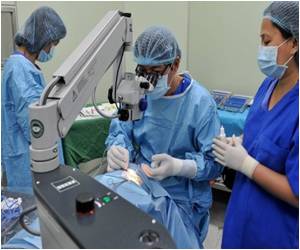Two genes that confer resistance against a particularly strong class of antibiotics can be shared easily among a family of bacteria, shows a new study.

"I do not think it is overstating the case to say that for certain types of infections, we may be looking at the start of the post-antibiotic era, a time when most of the antibiotics we rely on to treat bacterial infections are no longer effective," said Dr. Gautam Dantas, senior author and associate professor at the Washington University School of Medicine in St. Louis. The researchers studied a family of bacteria called Enterobacteriaceae, which includes E. coli, Klebsiella pneumoniae and Enterobacter.
Drug-resistant germs in this family of bacteria recently infected several patients at two Los Angeles hospitals. The infections have been linked to medical scopes believed to have been contaminated with bacteria that can resist carbapenems, potent antibiotics that are supposed to be used only in gravely ill patients or those infected by resistant bacteria.
Two genes are primarily responsible for carbapenem-resistant versions of these disease-causing bacteria. One gene, KPC, was detected in New York in 2001 and quickly spread around most of the world, with the exception of India, Pakistan and other South Asian countries. A second carbapenem resistance gene, NDM-1, was identified in 2006 in New Delhi, India. Dantas and his collaborators were curious about why the two resistance genes seemed to be geographically exclusive.
For the study, they compared the genomes of carbapenem-resistant bacteria isolated in the United States with those of carbapenem-resistant bacteria isolated in Pakistan. The researchers found that bacteria from the two regions were not genetically different. The bacteria's high genetic similarity suggests that the antibiotic resistance genes could be shared easily between bacteria from the two geographic regions, they noted.
Source-IANS
 MEDINDIA
MEDINDIA




 Email
Email







